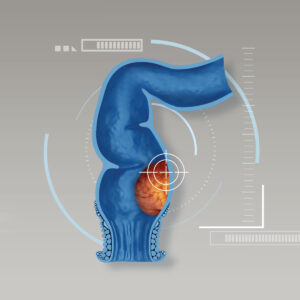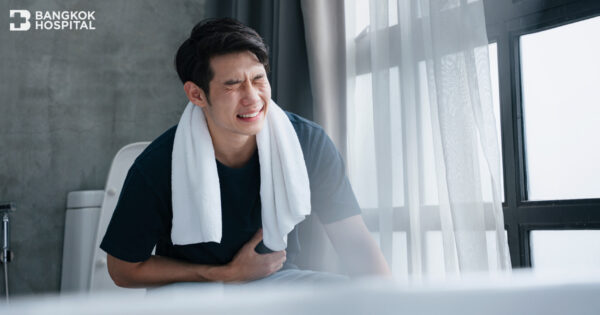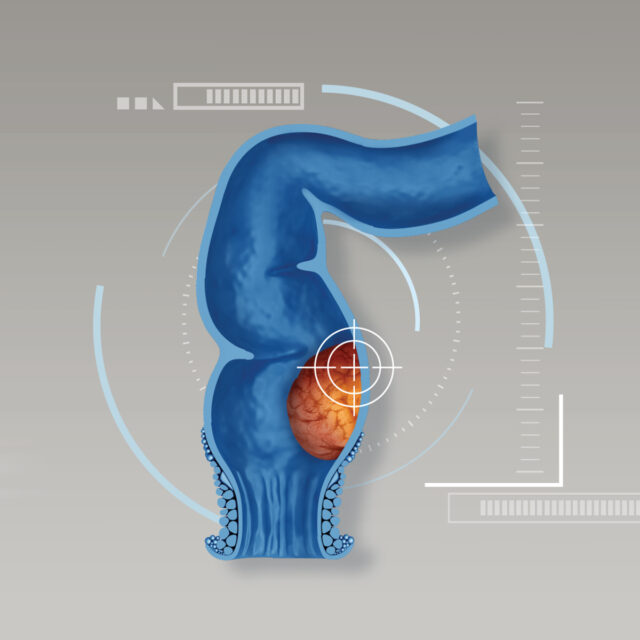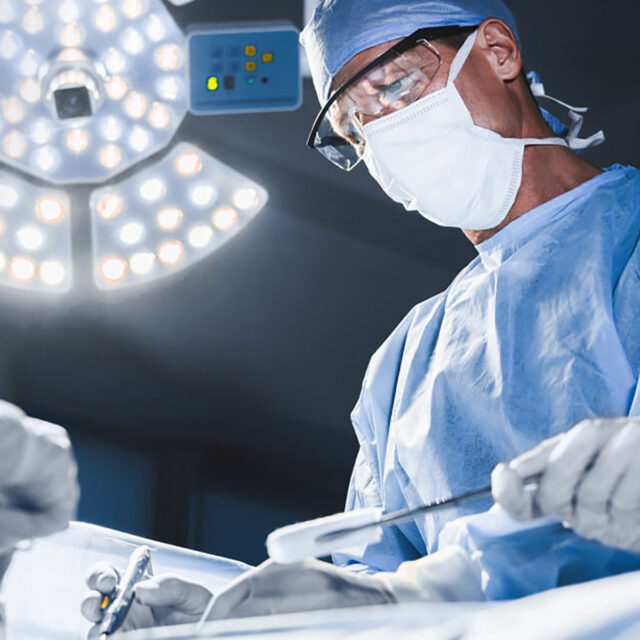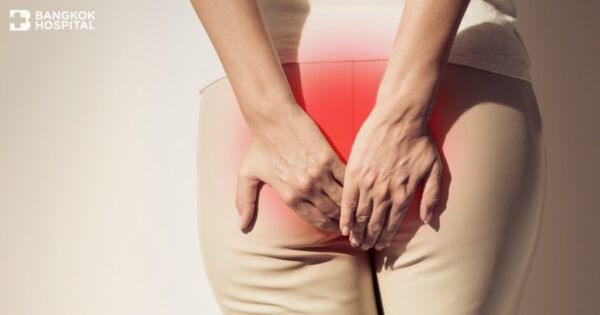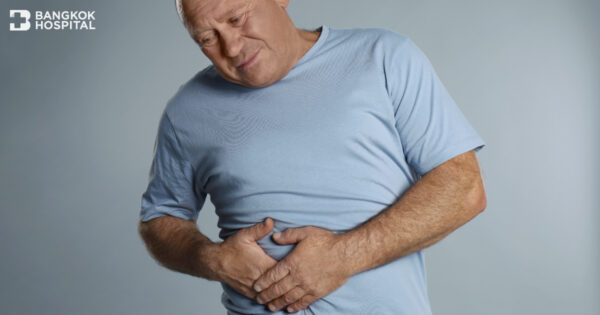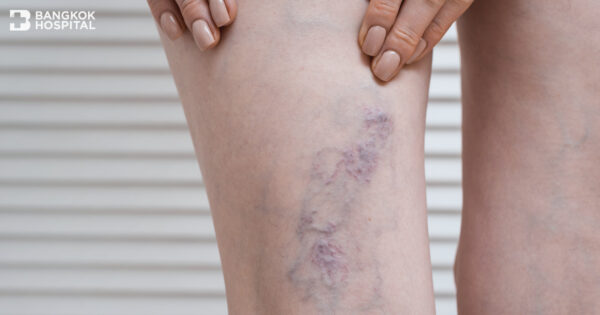When faced with constipation, many usually think it is a normal situation that can be managed through an alteration to their habits or taking laxatives. However, if the symptom has become chronic and is not properly treated, it can cause hemorrhoids. So, it is better to be prepared to handle the condition before it begins to interfere with your daily life.
How to know if I am suffering from chronic constipation?
You should observe whether or not you have been experiencing irregular or less frequent bowel movements – only 3 times a week – a long with any changed characteristic: for example, harder stool that is difficult to pass even with a lot of strain and you feel not all has been passed such that you need to use your hand to facilitate, or you find that you rely more often on laxatives. Chronic constipation is likely if these symptoms persist for 3 months or more.
What causes chronic constipation?
The 2 main causes of chronic constipation are categorized according to the symptoms. These are:
- Anatomy: Some features of the anatomy may have caused the colon to shrink or blocked – for example, a colon tumor, scar tissue from an abdominal surgery that constricts the colon, etc.
- Bowel Disorders: These can be subdivided into different groups. They are:
-
- Insufficient Bowel Movement. There are many causes for this condition such as other diseases (e.g., disorder of the nervous system, hypothyroidism, and diabetes, among others), medication (e.g., some types of medicine that treat allergy, seizure, high blood pressure, psychiatric conditions, etc.), low-fiber diet, irritable bowel syndrome (experiencing both diarrhea and constipation sometimes together with stomach cramps or bloating).
- Pelvic Floor Disorder. This is where the muscles facilitating stool movements do not function properly, making it difficult to defecate and requiring a lot of strain. The condition also includes pelvic organ prolapse.
How is chronic constipation diagnosed?
Your doctor will begin by checking your medical history as well as conducting general physical checkup that includes rectal examination. In some cases, the doctor may prescribe other special tests – such as colonoscopy to distinguish between blockage and constricted colon, or a test to determine bowel movement and effectiveness of the pelvic floor muscles as well as the anal sphincters.
How to treat chronic constipation?
Adjusting daily habits is at the heart of chronic constipation treatment. The recommendations are as follows:
- Drink at a minimum 1.5 – 2 liters of water every day, at least 1 – 2 glasses per meal and before going to bed.
- Choose high-fiber diet (e.g., readily keep fruits and vegetables in your fridge) that also contains all 5 food groups. Reduce amounts of meat and milk as well as bakery products.
- Maintain healthy bowel habits with a regular schedule. Do not avoid the urge to pass stool, nor try to force it otherwise.
- Regular exercise will help improve bowel movement.
- Use laxatives only temporarily. Each type has distinctive efficacy and affects the digestive system differently. You should use laxatives as advised by the doctor. It is not recommended that you purchase them unadvisedly, as it is possible to become addicted to the medication.
- Colectomy is an option to remove a tumor, or to treat diverticulitis or diverticular disease that has led to other complications.
What are the problems of chronic constipation?
Persistent constipation can negatively impact the person’s well-begin. This includes being irritable and lethargic, loss of appetite, as well as feeling tightness in the abdomen, bloated, flatulence and heartburns. These conditions can aggravate a heart disease or palpitation while passing stool. Other possible effects are hernia, urinary incontinence, hemorrhoids, anal fissure or anal fistula, as well as other intestinal disorders – such as diverticulitis or diverticular disease – that can become so severe that it leads to colon cancer.
How common are hemorrhoids?
Hemorrhoids are common but difficult to notice. Classified by their locations, there are 2 type of hemorrhoids: external and internal hemorrhoids. These are enlarged or swollen groups of veins or varicose veins under the skin tissue around the anus area. For a proper treatment, it is necessary to consult a specialist as the cause is often due to chronic constipation, straining during bowel movements and taking a long time to defecate, pregnancy, as well as other ailments such as liver cirrhosis, enlarged prostate, etc.
What are the observable symptoms of hemorrhoids from chronic constipation?
Common symptoms include itchiness with a growth or lump around the anus region, fresh blood mixed in stools, pain or discomfort around the anus or affected areas, as well as fainting or dizzy spells due to loss of blood. These conditions can also lead to a loss of self-confidence and affect a person’s quality of life, as the hemorrhoids can be agitating while, for example, running or sneezing. Though hemorrhoids do not increase the risks of colon cancer, they could possibly be misinterpreted. So, if you experience any of these symptoms, it is better to consult a doctor promptly – especially is you are over 40 years old – so that an appropriate treatment can be prescribed.
How are hemorrhoids treated?
Treatment depends on the progression and severity. There are 2 main methods. The first one is the treatment without surgery. It can be applied to patients with all stages of hemorrhoids. This method consists of adjusting habits related to constipation, utilizing hemorrhoid medication and laxatives, a high-fiber diet, hematinic supplement, and rectal suppository. To relieve the pain, sitting in a warm bath in the morning and evening, about 15 minutes each time, can be considered. The second method is through a medical procedure or surgery.
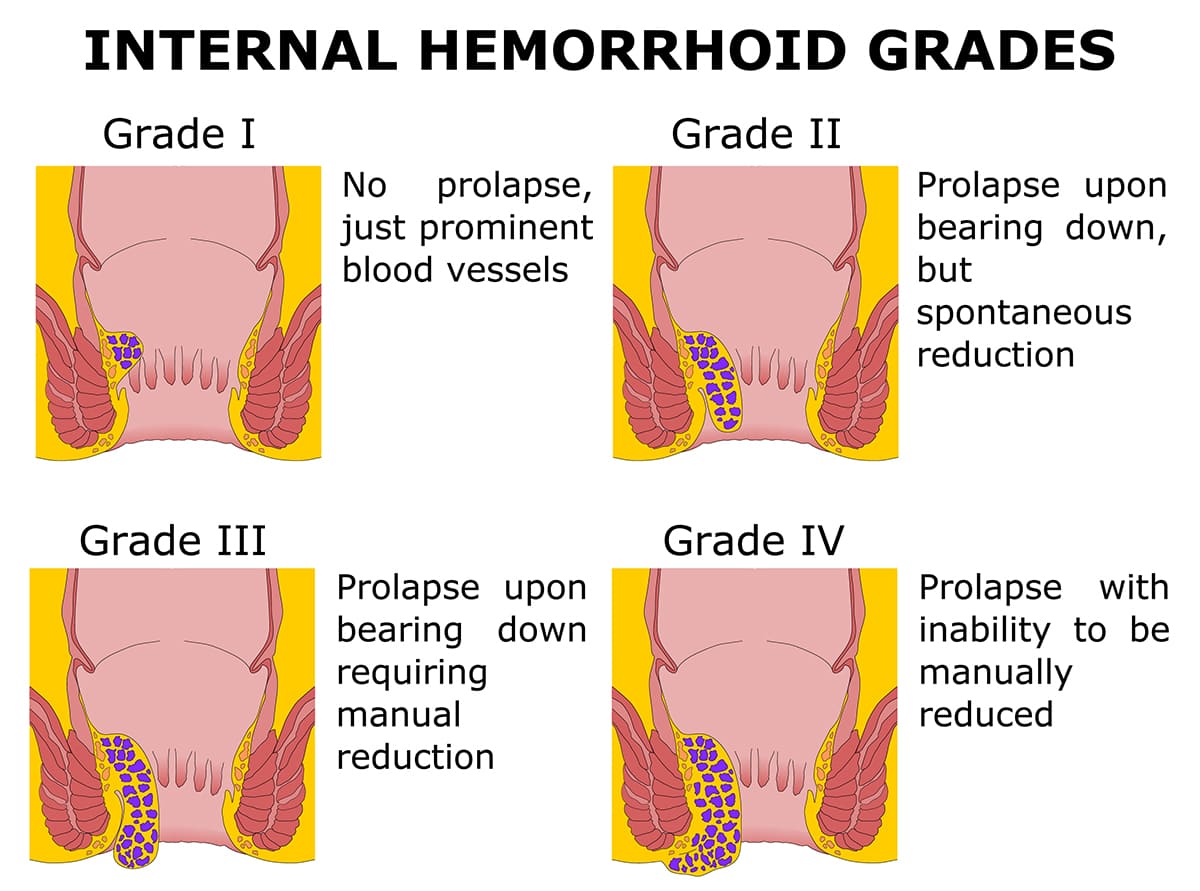
What are medical procedure and hemorrhoidectomy?
A hemorrhoidectomy depends principally on the progression and severity of the condition.
- Small-sized Hemorrhoids (Stages 1 – 2). Treatments consists of sclerosing therapy or rubber band ligation.
- Medium-sized Hemorrhoids (Stages 2 – 3). There are a few surgical techniques for the treatment consisting of:
-
- Laser Hemorrhoidoplasty. (https://www.bangkokhospital.com/en/bangkok/content/hemorrhoids-treated-by-laser) Similarly to a minimally invasive surgery, this has become a more popular option. For this procedure, a laser beam is used to coagulate the hemorrhoidal blood flow so that the hemorrhoids will gradually shrink. It is an effective treatment, but there is a chance of recurrences in the long term.
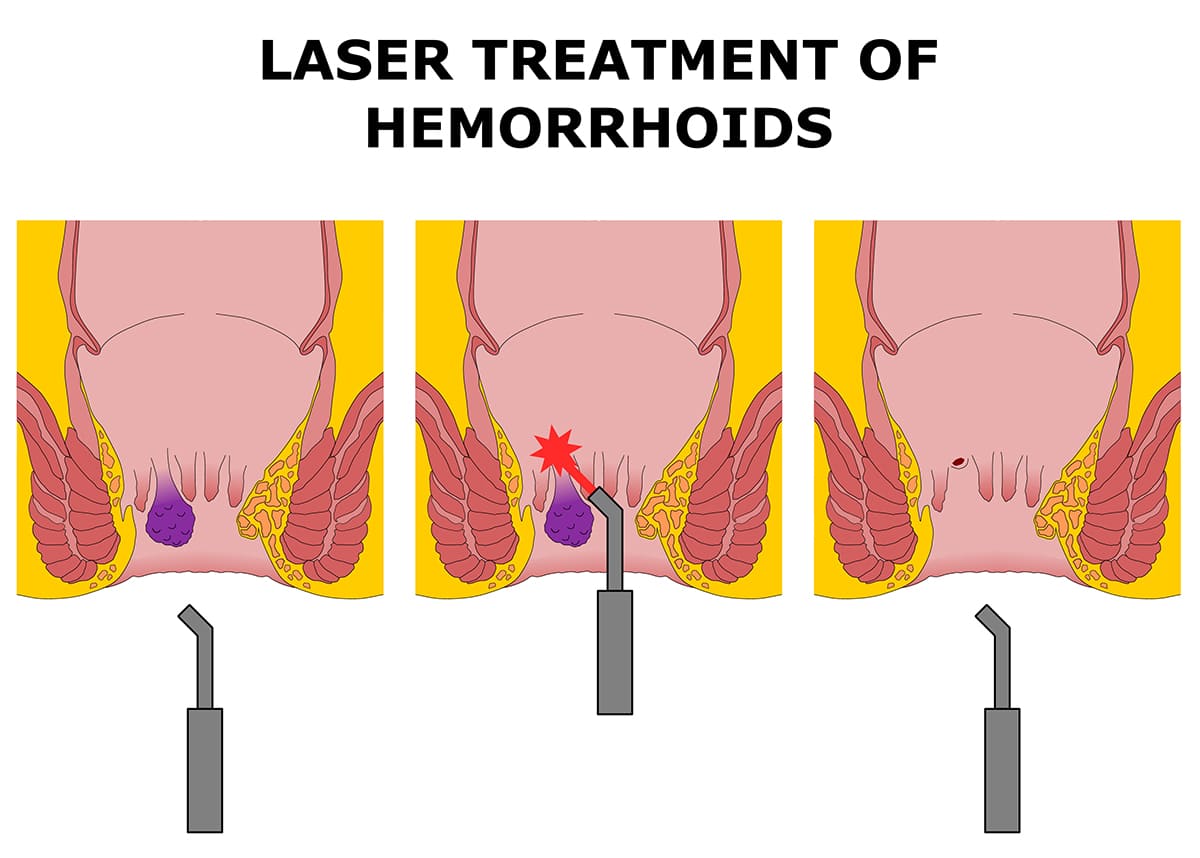
- Laser Hemorrhoidoplasty. (https://www.bangkokhospital.com/en/bangkok/content/hemorrhoids-treated-by-laser) Similarly to a minimally invasive surgery, this has become a more popular option. For this procedure, a laser beam is used to coagulate the hemorrhoidal blood flow so that the hemorrhoids will gradually shrink. It is an effective treatment, but there is a chance of recurrences in the long term.
-
- Hemorrhoidectomy using PPH Stapler. This procedure is suitable for treating multiple hemorrhoids that are not too big, because it requires lifting a circular strip of tissue around them. If the incision was too close to the anus, some external tissues could be damaged and causing discomfort.
- Hemorrhoid Artery Ligation. An ultrasound tool is used to locate the artery feeding each of the hemorrhoids and to cut off the blood supply without having to remove the hemorrhoids.
- Large-sized Hemorrhoids (Stages 3 – 4) including severely inflamed external hemorrhoids. This is the regular open hemorrhoidectomy that removes the enlarged and problematic tissues, including cutting off their blood supply. With this method, normal defecation can be managed after the procedure. It yields better long-term results than other techniques, and the least possibility of a recurrence. Sometimes, a vascular sealing device is also employed to reduce the loss of blood and lessen injury to the tissues.
Can the Devil’s Backbone herb, reddish, or honey be used to treat hemorrhoids?
The Devil’s Backbone is a Thai herb that, indeed, can be used to alleviate the symptoms of hemorrhoids. As for reddish and honey, both scientific studies and the Traditional Thai Medicine agree that the ingredients are not effective in treating hemorrhoids.
Can regular exercises help relieve constipation?
Bodily movements and exercises (such as jogging and bodily movements that involve turning or folding of the waist), when performed repeatedly, will internally massage the colon – enabling it to contract and expand better. This is one of the methods that stimulate the excretory system well.


